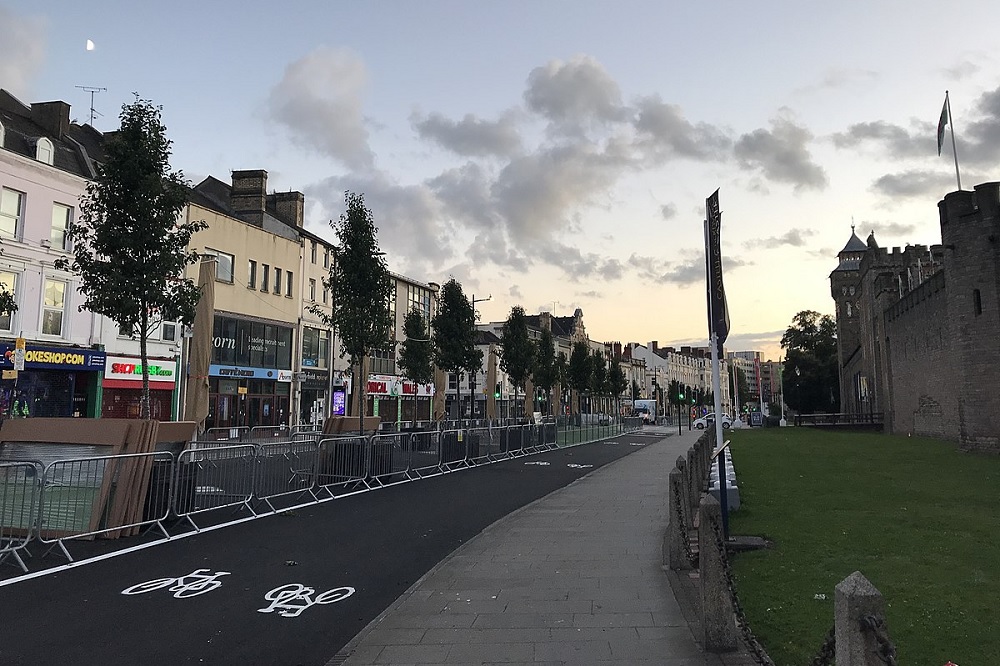Castle Street in Cardiff will reopen to private cars this autumn despite congestion and air quality concerns

Alex Seabrook, local democracy reporter
Castle Street in Cardiff will reopen to private cars this autumn after thousands voted against its continued closure, despite continued concerns over traffic congestion and air quality.
The main road across the city centre was shut last summer to all traffic, later opening in the autumn to just buses and taxis.
A major consultation was held this spring to find out whether the public wanted the road reopened to private motor vehicles or kept as it is.
Next Thursday, June 17, Cardiff council’s cabinet is set to approve the road reopening to private cars.
Councillor Caro Wild, cabinet member for strategic planning and transport, said: “Congestion and air-quality levels remain a major concern for residents.
“While air quality is generally improving across the city, we share concerns that localised traffic congestion can cause issues in central residential areas. We want to get more data about this, especially as things begin to return to normal and traffic numbers increase.”
‘Post-pandemic’
Castle Street will see fewer lanes than previously, with a dedicated bus lane and the new cycleway kept. Two lanes will be open for private cars. The council claimed this set up would still reduce air pollution levels compared to before the closure last year.
Of the 6,227 responses to the consultation, 53.8 per cent wanted the road reopened to private cars, while 33.8 per cent wanted the road kept closed to private cars.
Respondents aged over 55 were heavily in favour of reopening the road to private cars, while those aged under 35 were generally in favour of keeping it closed.
The council will now tender contracts to change the layout of the road, including making the pavement on the south side narrower, to allow an extra lane of traffic. Construction work is likely to start this summer and finish this autumn.
Cllr Wild added: “The delay in implementing a more permanent layout will allow us to carry out further traffic assessments. This will give us real time, up-to-date data on traffic flows post-pandemic, as commuters and visitors return to the city.
“We need to understand if the switch to home-working and the rises in active travel numbers which we have seen will have a long-term effect on traffic flows.
“Many of us have become used to less traffic during the pandemic and used to the cleaner air and health benefits that brings. I don’t think any of us want to return to a traffic-congested city any time soon, which is why we are committed to investing in walking and cycling routes and in cleaner, quicker and easily accessible public transport options.
“We are also committed to our plans for the South Wales Metro and looking into ways to fund new routes and stations, including continuing our feasibility work around road user charging.”
Support our Nation today
For the price of a cup of coffee a month you can help us create an independent, not-for-profit, national news service for the people of Wales, by the people of Wales.







I was given to understand that the reason it was closed in the first place was to provide room for restaurants and cafes along Castle St and the arcades to put tables and chairs out on the pavement in the open air during Covid. Nothing to do with congestion or pollution.
So just over 50% of respondents of a certain age to a limited ‘consultation’ apparently have a major impact on the health and well being of the citizens and visitors to the capital city of Wales for generations to come.
yes a positive impact, with travel times across the city drastically reduced and pollution in the local residential areas of riverside and grangetown which were used as the alternative route reduced and more fairly spread out.